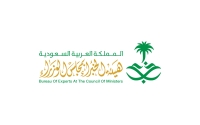
The Law of Evidence is one of the four key laws in the development of the Kingdom of Saudi Arabia’s specialized legislative framework, alongside the Family Law, the Law of Civil Procedures, and the Penal Code of Discretionary Sanctions. As the first to be enacted, the Law of Evidence was issued on December 30, 2021, comprising 129 articles designed to align with the Kingdom’s digital transformation in the justice sector, as well as its technical and economic advancements. It aims to establi...
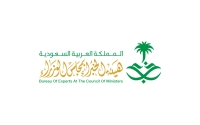
The Law of Real Estate Ownership and Investment by Non-Saudis is a set of legal rules governing the ownership and investment of real estate by non-Saudis, including both individuals and entities, within the Kingdom of Saudi Arabia. This law outlines the specific areas where non-Saudis can own property, the limitations on that ownership, and the associated rights. Issued on April 6, 2000, it consists of nine articles and supersedes the previous Law of Real Estate Ownership by Non-Saudis from 197...
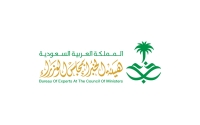
The Law of Combating Terrorist Crimes and its Financing in the Kingdom of Saudi Arabia is a set of legal rules related to terrorism as a crime. It defines the specific procedures, penalties, and circumstances that determine the applicable penalty for each of the crimes listed in the law. Issuance of the Law of Combating Terrorist Crimes and its Financing in Saudi Arabia The Law of Combating Terrorist Crimes and its Financing in the Kingdom was issued by Royal Decree on November 1, 2017, and by�...
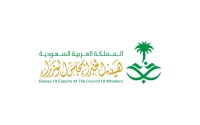
The Government Tenders and Procurement Law in the Kingdom of Saudi Arabia is a legal framework that governs the processes for government tenders, procurement, and related projects in the Kingdom. Its objectives are to ensure transparency in the awarding of government contracts, uphold integrity, and promote equal opportunities in existing tenders. Goals of the Government Tenders and Procurement Law The Government Tenders and Procurement Law aims to achieve four key goals. These are: achieving o...
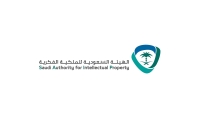
The Geographical Indications Protection Law is a comprehensive law that aims to provide full protection for geographical indications and prevent the unauthorized exploitation of the reputation associated with local products, recognized as geographical indications closely linked to specific regions within the Kingdom of Saudi Arabia. These products are considered to originate exclusively from these regions. The law also seeks to prohibit any imitation that could mislead consumers regarding the t...
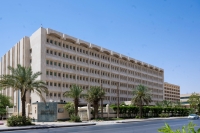
The Law of Judicial Costs is a law under the Ministry of Justice that serves to restrict vexatious litigation and fictitious actions and bolster justice efficiency in the Kingdom of Saudi Arabia . It involves the imposition of financial costs on obligated parties, payable to the competent authority in accordance with the provisions of the law and its executive regulations. The law was issued by a Royal Decree on September 7, 2021. Objectives of the Law of Judicial Costs The objective of the...
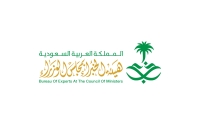
The Elderly Rights and Care Law in the Kingdom of Saudi Arabia is a set of legal rules dedicated to the rights and care of the elderly in the Kingdom. It ensures the provision of essential needs such as housing, food, clothing, and comprehensive health, physical, psychological, social, and recreational care. The law was issued on January 6, 2022. The Elderly Rights and Care Law provides both statutory and legal rights for the elderly in the Kingdom. An elderly person is defined as any citizen w...
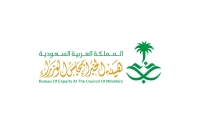
The Regulation of King Abdulaziz Foundation for Research and Archives (Darah) comprises a set of rules and procedures governing its formation, functions, and objectives. Issued on May 29, 2018, it consists of sixteen articles and replaced the Law of King Abdulaziz Foundation for Research and Archives (Darah) issued on February 16, 1972. Goals of Regulation of King Abdulaziz Foundation for Research and Archives (Darah) The Regulation of King Abdulaziz Foundation for Research and Archives (Darah)...
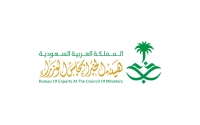
Yes, the Kingdom of Saudi Arabia has an environmental law, issued on July 10, 2020, consisting of forty-nine articles. This comprehensive and integrated law replaces the previous laws in force for environmental protection in the Kingdom. The Ministry of Environment, Water, and Agriculture is responsible for regulating and overseeing the environmental sector, as well as all related activities and services, in accordance with the provisions of the Environmental Law and its regulations. The law fo...

The Port Community Management System is an integrated electronic system that serves the port community in the Kingdom of Saudi Arabia . It was launched by the General Corporation for Ports ( Saudi Ports Authority - Mawani) on December 18, 2016, in collaboration with the Saudi Company for Exchanging Digital Information 'Tabadul,' aiming to develop and automate maritime services related to export and import. Beneficiaries of the Port Community Management System The Port Community Manage...
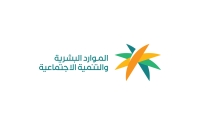
The Labor Law in the Kingdom of Saudi Arabia stipulates that the minimum legal age for employment is fifteen years old, allowing the Minister of Human Resources and Social Development to grant exceptions in certain cases. Saudi laws recognize the right of citizens to work and have established strict rules governing all aspects of employment, including the minimum working age, the relationship between the employee and the employer or establishment, and working conditions, rights, and obligations...

According to the Basic Law of Governance in the Kingdom of Saudi Arabia , there is no provision stipulating conscription. Article Thirty-Three outlines the formation and equipment of the armed forces for the defense of the faith, the Two Holy Mosques , society, and the nation without imposing a conscription requirement. Article Thirty-Four stipulates that it is the duty of every citizen to defend the Islamic Creed, the community, and the homeland, and specifies the rules for military services. ...